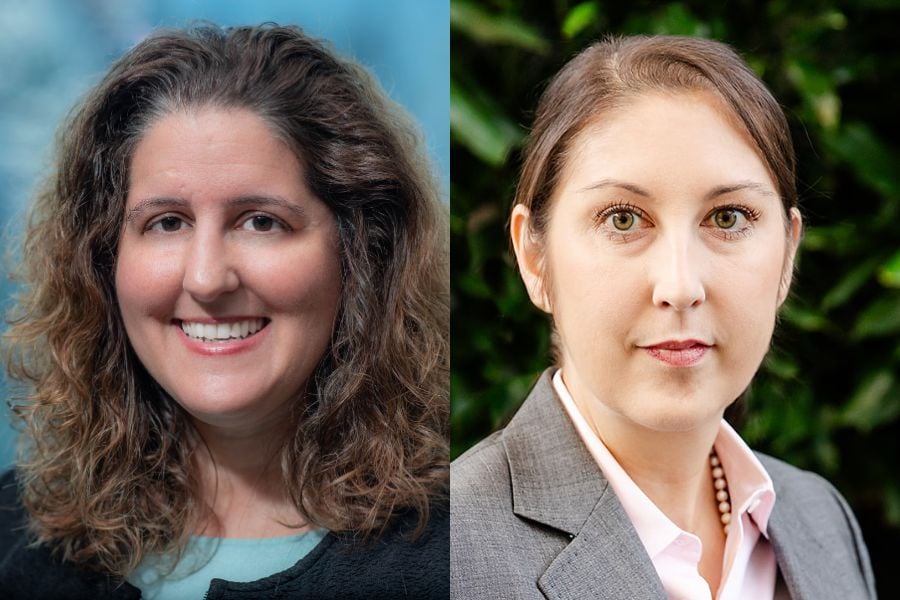

February may bring love and chocolate on Valentine’s Day but another day this month might bear a bit more significance for many – World Cancer Day, which falls on Sunday.
With cancer the second leading cause of death worldwide, advisors are having conversations with clients who are diagnosed with the disease and taking the appropriate steps to ensure they’re taken care of.
While there are several steps involved, from gathering estate documents to securing a will, Dan Sudit, partner at Crewe Advisors, says the first thing to do when a client discloses that they’ve been diagnosed is to have a check-in.
“Advisors really have to put aside some of the mundane administrative stuff, which is critically important, and they've got to ask their clients, how are they? Where are their heads? Where are their values and priorities? Is there any shift or change? And how do we help those clients realize those things, without adversely affecting them or their families or other ones?” he says.
Tricia Mulcare, principal at Homrich Berg, who’s had two clients recently diagnosed with cancer, said she wants to be the first phone call for her clients. As a fee-only advisor, she’s also often their free phone call.
Mulcare has a client who’s been battling breast cancer for 20 years and recently learned her cancer has come back “with a vengeance.” While the client admits she doesn’t know how long she has left, she’s had to make the necessary arrangements, a process that often means having to deal with former partners.
“She's divorced, all her money's going to her son, but the first thing I did was just triple check that IRA beneficiary to make sure there's no way her ex is named as the beneficiary,” Mulcare says. “That's one of the first things we do, because I don't want to be that person who tells the son, ‘Well, actually it’s going to dad,’ or worse yet, tell the new spouse the money's going to the last spouse.”
Another client of Mulcare’s died in his early 40s, while his children were still young. She had to talk to him and his wife about the importance of estate documents, and why they needed a will, power of attorney and medical directive.
“In North Carolina, where they live, if you don't have a will, and it goes based on probate, everything is split between the spouse and the children, which of course, we didn't want with the minors,” Mulcare said. “We were able to get a transfer on death at least, so that way the brokerage account went to his wife, as opposed to being split with the kids.”
While the topic and the situation can be distressing for both the advisor and the client, Kate Yoho, certified financial planner at TBH Advisors, suggests always planning ahead and getting the “softer” documentation looked after first. This includes everything from end-of-life documents, financial, legal, and health care provisions, and recommendations for certified public accountants and estate attorneys.
“I would check beneficiaries, I would check transfer-on-death status, and I would make sure that their will is up to date,” Yoho said.
“Step one would really be take care of your health, but from a financial standpoint, it's the documents first," she said, noting that disputes over inheritances can damage families. "Step two would just save as much as you can. You don't want to get reactive in your investment strategy.”
As for health care costs, Yoho adds that she’ll sometimes take a deep dive into clients’ health insurance coverage.
“I would ask about that and see what we should put away in an HSA, if possible, because it's triple tax free,” Yoho says. “If you live a few years, then your HSA has the chance to grow to maybe your out-of-pocket max. That’s a tool that is a gift from the federal government, like the Roth IRA.”
Another tool advisors should be aware of when it comes to cancer planning is the possibility of clients using a revocable trust.
“A few clients retitle their house into a trust for privacy purposes … so the stipulations of who gets what and how much is private,” Yoho says. “A lot of my clients will use revocable trust as a planning option to keep things more private, especially when there's an ex-spouse.”
Sudit says he makes himself available around the clock to clients who end up dealing with a hectic schedule involving chemotherapy or other treatments. “Even if it's just managing some of the administrative components of their finances to keep the financial machine going while they're dealing with the trauma that they're enduring, that's when you really earn your keep as an advisor and that's when you also provide true value to clients and their families.”

By listening for what truly matters and where clients want to make a difference, advisors can avoid politics and help build more personal strategies.

JPMorgan and RBC have also welcomed ex-UBS advisors in Texas, while Steward Partners and SpirePoint make new additions in the Sun Belt.

Counsel representing Lisa Cook argued the president's pattern of publicly blasting the Fed calls the foundation for her firing into question.

The two firms violated the Advisers Act and Reg BI by making misleading statements and failing to disclose conflicts to retail and retirement plan investors, according to the regulator.

Elsewhere, two breakaway teams from Morgan Stanley and Merrill unite to form a $2 billion RIA, while a Texas-based independent merges with a Bay Area advisory practice.
Orion's Tom Wilson on delivering coordinated, high-touch service in a world where returns alone no longer set you apart.
Barely a decade old, registered index-linked annuities have quickly surged in popularity, thanks to their unique blend of protection and growth potential—an appealing option for investors looking to chart a steadier course through today's choppy market waters, says Myles Lambert, Brighthouse Financial.
